January 6th, 2015 § § permalink
“What’s the deal with all this high school theatre?”
That’s the kind of comment—spoken, written or tweeted—I’ve been getting regularly over the past four years since I began writing about instances of censorship of theatre in American high schools (and, on occasion, colleges). To be fair to those who may be skeptical about the extent of the problem, I myself have been surprised by the volume and variety of issues raised over the content of shows being done—and, in some cases, ultimately not being done—in school-sponsored theatre.
But between writing about these incidents, and directly involving myself as an advocate in some of them, I’ve come to believe that what’s taking place in our high schools and on our campuses has a very direct connection to what is happening (and will be happening) on professional stages.
So here are nine common questions that have arisen as my advocacy has increased, and some answers—although, as every attempt at censorship is different, there aren’t any absolute answers.
1. Why is there so much more censorship of high school theatre these days?
There’s no quantitative study that indicates the policing of what’s performed is any greater than it was 10, 25 or 50 years ago. Everything is anecdotal. But the Internet has made it easier for reports to spread beyond individual communities and for news-aggregation sites uncover and accelerate the dissemination of such stories. It only takes one report in a small-town paper these days to bring an incident to national attention; that was a rarity in the print-only era.
2. Isn’t this just a reflection of our polarized national politics?
School theatre censorship doesn’t necessarily follow the red state/blue state binary division, because the impulse can arise from any constituency. While efforts to quash depictions of LGBTQ life—as with Almost, Maine in Maiden, N.C., or Spamalot in South Williamsport, Pa.—may be coming from political constituencies galvanized against the spread of marriage equality, or from certain faith communities which share that opposition, that’s hardly the only source. Opposition to Sweeney Todd, both muted (in Orange, Conn.) and explicit (in Plaistow, N.H.) was driven by concern about the portrayal of violence in an era of school shootings and rising suicide rates, while Joe Turner’s Come and Gone was challenged by a black superintendent over August Wilson’s use of the “n-word.”
3. What’s the real impact of school theatre on the professional community?
The Broadway League pegs attendance at Broadway’s 40 theatres in the neighborhood of 13 million admissions a year and touring shows at 14 million a year. TCG’s Theatre Facts reports resident and touring attendance of 11 million. That totals a professional universe of 38 million admissions.
Based on figures provided to me by half a dozen licensing houses, there are at minimum 37,500 shows done in high school theatres annually, and conservatively guesstimating three performances of each in 600 seat theatres at 75-percent capacity, that’s more than 50 million attendees. In both samples, the numbers don’t represent the total activity, but high school theatre’s audience impact is undeniable, both as a revenue stream for authors and as a means of reaching audiences who might not see any other theatre at all.
4. Does it really matter what shows kids get to do in high school?
While there are valuable aspects to making theatre that apply no matter what the play choice may be, many schools view their productions as community relations, frequently citing that they want to appeal to audiences “from 8 to 80.” While the vast majority of students in the shows, and their friends who come to see them, will never become arts professionals, they are the potential next generation of audiences and donors for professional companies. If they are raised on a diet of Alice in Wonderland and The Wizard of Oz (both currently very popular in the high school repertoire), how can we expect more challenging work , new work, or socially conscious work to sustain itself 20 years on?
5. Are school administrators fostering an environment in which censorship flourishes?
I’m unwilling to accept the idea that our schools are run by people who fundamentally want to limit what students can learn—or perform. But they are operating within a political structure topped by an elected board of education, and can be subject to political pressure that often makes the path of least resistance—altering text or changing a selected show, in most cases—the expedient way to go. Unless an administrator (or a teacher, for that matter) is independently wealthy, they can’t necessarily afford to risk their job fighting for the school play that may have challenging content. That said, students at Newman University rebelled against administration-dictated text changes, reverting to the script as written for the latter two of their four performances of Legally Blonde in November.
6. Isn’t this a free speech issue?
In a word, no. Schools have the right and responsibility to determine what is appropriate activity and speech under their control, and just because students are exposed to all manner of content in the media and even in their day-to-day lives doesn’t mean that schools can or must permit it, either in classrooms or performance. That The Crucible is in countless high school curriculums does not necessarily prevent it from being censored as a performance piece, despite the seeming double standard.
The same stringent oversight that affects school theatre is also often directed at school newspapers and media. However, while some school systems attempt to control all student speech, it is a First Amendment violation to infringe on student speech to the media about their dissatisfaction with the actions of a school, including censorship. Drama teachers, who are best equipped to make the cases for the shows they choose, are usually prevented from doing so by employment agreements which prohibit them from discussing school matters without the express approval of the administration, typically the superintendent.
7. Don’t shows get edited all the time in schools for content?
In all likelihood, shows are constantly being nipped and tucked by teachers and administrators to conform to their perception of “community standards,” whether it’s the occasional profanity or entire songs. But that doesn’t make it right, and it is censorship. Aside from violating copyright laws and the licensing contracts signed for the right to the show, it sets a terrible example for students by suggesting that authors’ work can be altered at will, undermining the rights of the artists who created the work.
Some writers and composers have authorized school editions or junior versions of their shows for the school market to recognize frequent concerns and to keep from denying students the opportunity to explore their shows. But the rights must lie with the authors, not each and every school. If that isn’t made clear early on, how can we expect to fight censorship anywhere?
8. When a show is canceled and then successfully restored through a public campaign, is that winning the battle and then losing the war?
That’s a genuine concern of mine—that once there’s a public battle over theatrical content, the school will thereafter clamp down even harder and apply greater scrutiny forever after to drama programs, academic or extracurricular. At the Educational Theatre Association’s national conference this past summer, one attendee asked the others if there were shows that they believed would be great for their students but which they couldn’t even raise as possibilities. Every single teacher in the room raised his or her hand. So the incidents that become public—ones in which a show is announced, then has approval rescinded—are the tip of the iceberg. Drama teachers and directors are already having their choices limited, often by self-censorship. There’s much more work to be done, but if blatant examples don’t come to light, it may never be possible to galvanize support for school theatre that challenges students to do great work and great works.
9. Can professional artists and companies make any difference when incidents of censorship arise?
Local theatres—professional, community and academic—make superb allies in fighting against censorship. Institutions and individuals within communities that are respected for their art occupy a position from which to speak out forcefully and effectively for school theatre programs. Whether it’s a nearby artistic director or a one-time resident who has gone on to a professional career, they bring a history and authority that will speak to both the local populace and the media. The vocal support of the Yale School of Drama and Yale Rep with the aforementioned Joe Turner, and of Goodspeed Musicals and Hartford Stage in the case of Rent in Trumbull, Conn., were key factors in the ultimately successful efforts toward restoring those shows to production.
In closing: The first time I inserted myself into a school theatre censorship debate in 2011, I assumed it was a one-off. I did not realize at the time that I had found a cause. Each time an incident comes to a conclusion, regardless of whether the outcome was, from my point of view, positive or negative, I think that surely the message is getting out there and this will be the last time. But then comes the phone call, the e-mail, the tweet, from someone I’ve never met and possibly never will, saying that a show is threatened or has just been shut down. And I begin my introductory speech, which is unfortunately well-honed at this point.
“This is no longer about education,” I say, “this is no longer about art. This is now a political campaign.” And off we go.
This post first appeared at AmericanTheatre.org
November 25th, 2014 § § permalink
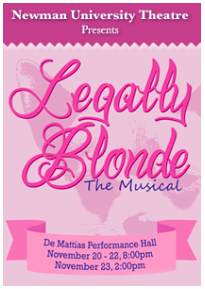 To say that Newman University’s production of the musical Legally Blonde was performed with its book and lyrics intact this past Saturday and Sunday would seem to be a wholly unremarkable event. But because that wasn’t the case at Thursday and Friday’s shows, the fidelity of the latter two performances is rather more intriguing. How did a university production suddenly shift away from censorship halfway through a four performance run? How, to paraphrase a lyric from The Producers, did Legally Blonde go right?
To say that Newman University’s production of the musical Legally Blonde was performed with its book and lyrics intact this past Saturday and Sunday would seem to be a wholly unremarkable event. But because that wasn’t the case at Thursday and Friday’s shows, the fidelity of the latter two performances is rather more intriguing. How did a university production suddenly shift away from censorship halfway through a four performance run? How, to paraphrase a lyric from The Producers, did Legally Blonde go right?
* * *
Newman University in Wichita, Kansas is a Catholic school with an undergraduate enrollment of 2,795, according to data from the U.S. News and World Report online rankings. It was founded by a religious order, the Adorers of the Blood of Christ as a women’s college in 1933, becoming co-ed in 1965.
The theater program at Newman is in just its fourth year. It was only in 2013 that students could declare as theatre majors, and the program currently has 18 majors and 12 minors. The school boasts two theatres and the theatre program produces four shows each year. Past productions include Lend Me A Tenor, Iphigenia in Aulis and in Taurus, Measure For Measure, and this fall’s Buried Child. Director of Theatre Mark Manette notes that there have been some rumblings about the content of some of the department’s productions in the past, including sexual content in Tenor and Pippin, citing one 2012 letter to the school newspaper saying that the school was producing plays with “a heaping helping of sexual innuendo.”
In announcing Legally Blonde, Manette felt he was choosing a mainstream, modern show for his students, aware that it is one of the most popular musicals in high school theatre. Save for making some very minor script emendations – “god damn” is a problem at a faith-based university, for example – the show went into rehearsals using the script as written. In the words of senior C.L. Smet, a theatre major who was cast as Paulette, “There were very light hints of censorship early on, but only the type of things that we are used to. In most shows we are asked to take out all instances of using the lord’s name in vain because we go to a Catholic university.”
* * *
Manette’s purview over the theatre department does not require him to submit his play selection for approval to the university. But with rehearsals underway, he was called to the Provost’s office on November 6, in order to address rumors that had begun to swirl about the content of Legally Blonde.
“When I was called into the office I was told that our production featured live masturbation, drug use, and two guys kissing,” said Manette. “My response was that the show features none of these things. But the seed of the rumors could be traced to the two changed lines: ‘Masturbatory emissions’ and ‘Get you high and laid’.”
Although Manette clarified the show’s content, he was still asked to make changes to the script. “I was told that I had to make the changes or else,” said Manette. “I did send a letter to the Provost stating that I had signed a contract not to make any changes to the script. He took that up the ladder, so to speak, and told me to go forward with making changes.”

C.L. Smet and Trevor Farney in Legally Blonde at Newman University (Photo courtesy of Newman University)
According to Smet, “Nothing seemed weird until a few days before tech week started, when individual cast members started being pulled aside and told that we had to change lines. For instance, my line ‘What’s she got that you don’t got, three tits?’ had to be changed to ‘three boobs’ this was a very minor change compared to many others but was still frustrating and unnecessary right before tech week. We were told by our director, music director, and the head of our department that these changes were from the administration directly. We were told that several higher-ups…were lodging complaints about the content.”
“We were also told repeatedly not to raise hell about the issue, because if we were to dig too deep we might cause more harm than good,” Smet related. “Obviously, however, we decided to pursue the matter. I was one of the loudest about my disappointment with the administration. I attempted to have a meeting with the President of our college. However, when I told them it was regarding Legally Blonde censorship, I was told she ‘didn’t speak to students,’ which I find very hard to believe. Many other students were confused and bothered by the censorship. A few of them were willing to just lay low and let it pass, but most of my fellow theatre majors saw the utter illegality of the changes and wanted to do something to help. Apart from the legal issues, many students were just sad that at the college level we were expected to perform a watered-down play, as if the world would end if somebody say “masturbate” on stage. It was a very frustrating and confusing time for everybody involved.”
* * *
 On the evening of the first performance, the school newspaper, The Vantage, published its weekly print edition with a lead story on the censorship of the Legally Blonde text. The story was assigned by the paper’s editor-in-chief, senior Matt Riedl – who happened to be a member of the Legally Blonde ensemble.
On the evening of the first performance, the school newspaper, The Vantage, published its weekly print edition with a lead story on the censorship of the Legally Blonde text. The story was assigned by the paper’s editor-in-chief, senior Matt Riedl – who happened to be a member of the Legally Blonde ensemble.
“It was my decision as editor-in-chief to pursue the story,” said Riedl. “It wasn’t something that was being brought out by the administration. We thought it was our responsibility. Every viewpoint can be voiced. There had been a few voices that had been pro-censorship, but we thought it was important that every viewpoint be represented.”
The story by Delaney Hiegert, ran with the headline “Legally Blonde Censorship Rankles Cast Members,” as well as a subheadline, “Illegally Changed?” It cited Provost Michael Austin confirming that the show would be a censored version.
There were at least six lyric changes to the musical, as well as multiple dialogue changes, in order to make the play more appropriate for all audiences, he said. The changes involved taking out any sexually derogatory remarks, references to sex and drugs, any use of the word “Christ,” and most all cursing.
For instance, Elle Woods’ line “masturbatory emissions” has been changed to “accidental emissions,” and Professor Callahan’s line, “Get you high and laid,” has been changed to “Get you entertained.”
“When we do plays, we are inviting not just the campus, but the community to come watch,” said Austin. “We have to be very careful to represent the values of the institution.”
The Vantage article spoke not only to the changes to Blonde, but the greater potential impact of the censorship on the theatre program. Quoting freshman Trevor Farney:
“I loved being a part of Buried Child. I love the directors and the people I’ve gotten to work with,” Farney said. “But I don’t want to act in something that’s just going to be a watered-down version of what it should be. In Legally Blonde, the censorship is annoying but it doesn’t hurt the production that much. But if the censorship continues, I don’t even know if I’d want to stay in the program. And that’s a shame.”
The Vantage story made the alteration of the Blonde script a campus-wide issue. Riedl cited that the piece received 1500 page views on the paper’s website, in contrast to the prior month’s top story, which had only 700. He noticed that in some places, in particular the theatre’s lobby, someone had flipped the papers upside down in their racks, so that the headline wouldn’t show. He said that his girlfriend reported sitting in the theatre pre-show and watched as many people read the paper’s front page.
“The article in the Vantage was huge,” said Smet. “It had a massive impact around campus and the entire Wichita theatre community. The outpouring of support was awesome, and it encouraged the cast to continue fighting.”
* * *

Legally Blonde at Newman University (Photo courtesy of Newman University)
The first two performances of Legally Blonde at Newman contained the mandated cuts and substitutions imposed by the administration. But C.L. Smet says that change was already afoot.
“Once the Vantage article was published, cast members became even more open about not being okay with the censorship,” Smet said. “For our Saturday performance we returned 100% to the written word of the script – we did the play that was actually written. We joked that it was the first Legally Blonde performance we’d done, and after the show we all had a group bonding moment celebrating the uncensored show.”
Riedl described the decision in similar terms. “We decided to perform the musical in its full uncensored form on Saturday and Sunday,” he said. “It was kind of a group decision. We had a little meeting before our performance on Friday and we talked about it. The coverage was getting so widespread and everyone was talking about it so we decided we weren’t going to put up with it any longer. We were going to subvert the order to change.”
The student motivated changes don’t precisely jibe with the account from Provost Michael Austin.
“We ended up not making the changes,” said Dr. Austin. “They went on according to script. We looked at what might be possible but decided that we’d do it the way it was in the script.”
Austin did say that the issue was a major one for the school, saying it was “hotly debated and discussed.” He said that he attended the show on Sunday and that the show was performed as written, but could not speak to whether the complete text was in use at all performances.
Riedl professed surprise when informed that the administration had withdrawn its requests for text changes. “Really? That’s interesting,” he said. “Because I was under the impression it was a cast decision. There’s definitely some confusion there. I had not heard that. That’s very interesting.”
Riedl went on to recount a moment during the Saturday night show, during the song, “Blood in the Water.” “‘Get you high and get you laid’ was supposed to ‘get you entertained,’ he recounted. “From the stage, I heard someone whisper, ‘I thought that was supposed to be censored.’ It took some power to not break character from that.”
With somewhat conflicting stories about how the show was restored to its original text, Manette seemed to walk a careful line about what had taken place. He ascribed the choice to the students, noting that, “The people who had called for the censorship were not the ones behind the decision to do the show as written.”
* * *
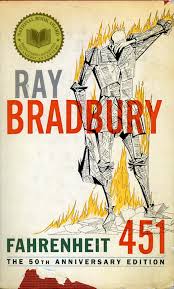 The issue of censorship is not an off-limits topic on the Newman University campus. It’s worth noting that all freshman this year were assigned to read Ray Bradbury’s Fahrenheit 451, the now classic novel in which censorship is taken to its ultimate extreme, with all books being sought out and burned by “fireman,” forcing lovers of knowledge into clandestine circles designed to preserve knowledge and texts.
The issue of censorship is not an off-limits topic on the Newman University campus. It’s worth noting that all freshman this year were assigned to read Ray Bradbury’s Fahrenheit 451, the now classic novel in which censorship is taken to its ultimate extreme, with all books being sought out and burned by “fireman,” forcing lovers of knowledge into clandestine circles designed to preserve knowledge and texts.
“There is artwork all over the building regarding censorship related to that novel,” Manette said. “Most members of the faculty and audience were appalled at the idea of censoring a production. Two pieces of art work across from the entrance of the theatre were mysteriously taken down on opening night – one was a nude – and they were miraculously replaced after the show closed. Coincidental?”
Smet told a similar story. “There was a great deal of other censorship happening in our arts department — nude paintings and “controversial” art work were removed from the hallways against the art department’s will. The entire fine arts sector of Newman was upset that they were being censored. Many people told us they supported us ‘fighting the power’.”
* * *
It’s unclear precisely where the complaints about Legally Blonde began and it’s also not certain exactly when or if approval was given to perform the show as written, as it was at the latter two performances. Precisely who in the administration really wanted the show edited remains somewhat vague, and no one with direct knowledge would speak to it on the record. But certainly the students took matters into their own hands, perhaps with the tacit approval of some members of the school administration.
Dr. Austin was quite clear about lessons learned from the imbroglio.
“Generally, I can say that the incident was not handled well,” he wrote to me, “for which I take full responsibility. We will not be suggesting changes to plays in the future, nor do we have any plans to exercise prior restraint on plays chosen by the Theatre Department.”
Austin’s statement is very encouraging, suggesting that Mark Manette will be able to continue to build Newman University’s theatre department and give his students the opportunity to work on a wide range of shows – as they were written. For the staff of The Vantage, they’ve gotten proof of the power of independent journalism to foster change. As for the cast of Legally Blonde? They’ve demonstrated that the words spoken on a stage matter, and that the words of authors come first.
* * *
Note: interviews for this article were conducted through a combination of voice interviews and e-mail correspondence. The word “said” may apply to both voice and e-mail communications.
August 5th, 2014 § § permalink
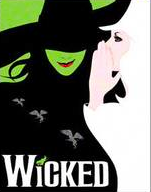 Years from now, when the musical Wicked is eventually made available for school and amateur productions, will some high school administrator declare it inappropriate? After all, among its many plot strands is the story of (spoiler alert) the manipulative Madame Morrible, a school headmistress who schemes against those in Oz who don’t conform precisely to her standards, be they green girl or anthropomorphic animal. It’s a terrible portrait of pedagogy gone wrong and surely doesn’t foster the collaborative, supportive relationships that school leaders must seek with each successive generation of students, as well as with their faculty and staff. From that perspective, it’s seditious.
Years from now, when the musical Wicked is eventually made available for school and amateur productions, will some high school administrator declare it inappropriate? After all, among its many plot strands is the story of (spoiler alert) the manipulative Madame Morrible, a school headmistress who schemes against those in Oz who don’t conform precisely to her standards, be they green girl or anthropomorphic animal. It’s a terrible portrait of pedagogy gone wrong and surely doesn’t foster the collaborative, supportive relationships that school leaders must seek with each successive generation of students, as well as with their faculty and staff. From that perspective, it’s seditious.
I’m reminded of this element of Stephen Schwartz and Winnie Holtzman’s massively popular musical as I consider the challenges to high school theatre that I’ve read about, heard about and involved myself in. Recently, I was engaged to deliver the opening keynote at the Educational Theatre Association’s (EdTA) annual conference for high school teachers. During the question and answer session that followed, one attendee asked the others how many had had shows turned down when they sought approval for them. Roughly a quarter of those in the room raised their hands. In follow-up, they were asked how many had wanted to do certain shows, but didn’t even try because they were sure they couldn’t get approval. Virtually every teacher raised their hand.
Because I don’t believe that these teachers had all been contemplating Oh! Calcutta!, I find myself wondering about their internal decision-making, their self-censorship. Surely they weren’t considering shows which would be blatantly inappropriate in a school setting, so what are those shows that they thought would be good for their students, but which they didn’t even dare raise as a possibility? That might make for an interesting survey in itself.
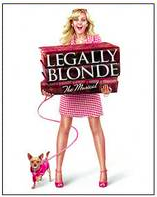 Of course, what’s acceptable to the powers that be at one school, in one town, may be considered problematic in another. Earlier this year in New Hampshire, Sweeney Todd was canceled at Timberlane High School (since reversed) even as another school just a few towns away readied their production of the same show. In 2012, Sonja Hansen lost her position directing shows at Loveland High in Ohio after her production of Legally Blonde was declared inappropriate, yet according to the EdTA’s annual survey, its was the fourth most popular musical in high schools nationally.
Of course, what’s acceptable to the powers that be at one school, in one town, may be considered problematic in another. Earlier this year in New Hampshire, Sweeney Todd was canceled at Timberlane High School (since reversed) even as another school just a few towns away readied their production of the same show. In 2012, Sonja Hansen lost her position directing shows at Loveland High in Ohio after her production of Legally Blonde was declared inappropriate, yet according to the EdTA’s annual survey, its was the fourth most popular musical in high schools nationally.
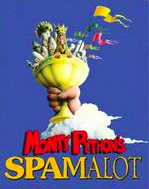 So I’m very interested in the new “Public Performance Policy” that has been put into place at the Junior/Senior High in South Williamsport PA, where a production of Spamalot has been canceled by the principal for reasons that remain unclear. The drama director Dawn Burch asserts that Principal Jesse Smith stated, in an e-mail, that the show’s gay content was a factor. Smith himself has been silent since this story broke, and while the school administration has taken exception to one element of the first report about the issue (since corrected), it has yet to produce the e-mail in question to clear things up. Two “Right To Know” requests have been filed seeking that e-mail and related documents; one of those requests is mine.
So I’m very interested in the new “Public Performance Policy” that has been put into place at the Junior/Senior High in South Williamsport PA, where a production of Spamalot has been canceled by the principal for reasons that remain unclear. The drama director Dawn Burch asserts that Principal Jesse Smith stated, in an e-mail, that the show’s gay content was a factor. Smith himself has been silent since this story broke, and while the school administration has taken exception to one element of the first report about the issue (since corrected), it has yet to produce the e-mail in question to clear things up. Two “Right To Know” requests have been filed seeking that e-mail and related documents; one of those requests is mine.
The timing of the Public Performance Policy, revealed last night at a meeting for the school board, is certainly no coincidence, coming between the initial assertions of anti-gay bias and the release of clarifying materials. As read by the school superintendent, Dr. Mark Stamm, it states:
General Guidelines: Public performances serve as a capstone project for students to showcase their dedication, determination, and talents for their peers and for their families. Performances must be age appropriate for participating students and audiences. Material that is generally considered offensive, suggestive, or demeaning based on race, religion, age, gender, or sexual orientation is not appropriate for school performances.
The first sentence of the policy, describing “showcasing dedication, determination, and talents,” is nicely affirmative – until one notices that there’s no mention of learning or growth, which would seem essential in any school activity, even at South Williamsport, where the drama program is extracurricular, and the drama director an outside contractor, not a teacher. That said, any adult working with young people in a leadership position is a teacher, accredited or not.
However, it’s worth noting that there is a mission statement for the drama program on the school’s website which admirably speaks to deeper value. It reads:
Our mission is to provide students with the opportunity to better themselves through the Arts. Whether it is onstage or backstage, in the production crew or artistic departments, theater helps all people more deeply understand our place in our modern, multicultural, globalized world.
As an aside: finding the drama information on the school website isn’t entirely logical. While there’s a section for clubs, which includes “Yearbook,” “Chemistry,” “Student Council” and “Songwriters and Musicians,” it doesn’t include “Drama.” The Athletic Program has its own site, with its own URL separate from the school district’s. But “Drama” falls under “Departments,” along with “Guidance” and “Nurse,” to which it seems wholly unrelated. How very odd to set it apart in this way.
But returning to the Public Performance Policy, the second sentence isn’t particularly troublesome, so long as it is not used as a justification to infantilize students by feeding them dramatic pabulum. But it’s the third sentence sentence where things turn tricky. While the phrase about not demeaning any parties is admirable (although in their seeming haste, they neglected disability, among other concerns), the language which begins the sentence is limiting, yet vague. “Offensive” and “suggestive” are completely subjective, presumably to be determined according to Justice Stewart’s famous phrase about what constitutes obscenity: “I’ll know it when I see it.” But no two people probably agree about what is offensive, or what is suggestive.
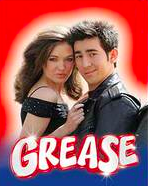 If this policy is meant to be general guidance for teachers (and contractors), shouldn’t it be constructed as such? Wouldn’t it be better to use affirmative language about supporting and advancing society through inclusive representations of race, religion, age, gender, or sexual orientation, instead of saying it simply won’t demean people on those grounds? As it is now, the policy seems more a declaration for the public, and a very general yardstick that teachers might be struck with should they violate its amorphous tenets. Since the school already has a practice of the principal approving the drama productions, it seems that process would presumably address content concerns, based upon reading the text and exploring productions and educational materials from other schools as aids, but in an open dialogue that would negate the need for future Right To Know inquiries. That said, I don’t favor shows going to any manner of public vote, and school boards shouldn’t decide play selection any more than they tell a coach what athletic plays to run.
If this policy is meant to be general guidance for teachers (and contractors), shouldn’t it be constructed as such? Wouldn’t it be better to use affirmative language about supporting and advancing society through inclusive representations of race, religion, age, gender, or sexual orientation, instead of saying it simply won’t demean people on those grounds? As it is now, the policy seems more a declaration for the public, and a very general yardstick that teachers might be struck with should they violate its amorphous tenets. Since the school already has a practice of the principal approving the drama productions, it seems that process would presumably address content concerns, based upon reading the text and exploring productions and educational materials from other schools as aids, but in an open dialogue that would negate the need for future Right To Know inquiries. That said, I don’t favor shows going to any manner of public vote, and school boards shouldn’t decide play selection any more than they tell a coach what athletic plays to run.
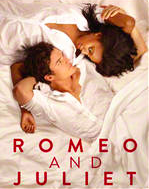 I wonder, however, where the concerns were when the South Williamsport High School did Grease and Once Upon A Mattress? Certainly there are those who would find the plot points about pregnancy out of wedlock in those shows both offensive and suggestive. Grease, frankly, is rife with suggestiveness, at least as I construe it, but I don’t happen to find it offensive; but it was more than enough to cause a school in Missouri, following a 2006 production, to cancel the next show on the schedule: The Crucible. What about Urinetown, produced at the school in 2009? All that talk of toilets and body functions must have offended the sensibilities of some in South Williamsport. The world’s most famous teen suicide story, Romeo and Juliet, was staged, but I wonder whether the school provided educational programs and material to students and the public about the dangers of romanticizing exactly the sort of behavior Shakespeare depicted?
I wonder, however, where the concerns were when the South Williamsport High School did Grease and Once Upon A Mattress? Certainly there are those who would find the plot points about pregnancy out of wedlock in those shows both offensive and suggestive. Grease, frankly, is rife with suggestiveness, at least as I construe it, but I don’t happen to find it offensive; but it was more than enough to cause a school in Missouri, following a 2006 production, to cancel the next show on the schedule: The Crucible. What about Urinetown, produced at the school in 2009? All that talk of toilets and body functions must have offended the sensibilities of some in South Williamsport. The world’s most famous teen suicide story, Romeo and Juliet, was staged, but I wonder whether the school provided educational programs and material to students and the public about the dangers of romanticizing exactly the sort of behavior Shakespeare depicted?
Was everyone sanguine with the following plot points, drawn from two synopses on the website of the licensing house Music Theatre International:
Soon after, attractive and seductive women appear and slowly surround him (“With You”). At first, Pippin is enjoying the romanticism, however, the mood quickly changes and the women bombard him. Pippin is pulled into numerous exotic orgies.
* * *
Audrey has forgotten her sweater, and Orin slaps her around for it…. Orin then pulls out a container of laughing gas, complete with a gas mask and puts it on himself to get high… Seymour feeds Orin’s body parts to the plant.
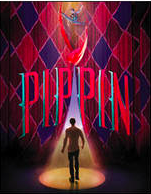 Obviously they passed muster, because Pippin and Little Shop of Horrors were produced at the school before Dawn Burch was hired. With this new policy, could any of the aforementioned shows be done again? Indeed, since there are – sad to say and sad as it is – still people who find homosexuality offensive, would LGBT life in any play or musical be precluded from the South Williamsport stage in deference to their reactionary sensibilities?
Obviously they passed muster, because Pippin and Little Shop of Horrors were produced at the school before Dawn Burch was hired. With this new policy, could any of the aforementioned shows be done again? Indeed, since there are – sad to say and sad as it is – still people who find homosexuality offensive, would LGBT life in any play or musical be precluded from the South Williamsport stage in deference to their reactionary sensibilities?
At the EdTA conference, I repeatedly counseled teachers to cultivate open and honest communication about their work with their department heads, their principals, even their superintendents if possible. Support for sports seems a given at our schools, but support for all of the arts, and it seems theatre in particular, must be developed over time – and started anew each time a key leadership position changes personnel.
When cancelations emerge from behind school doors into the public consciousness, locally and nationally, genuine rifts inside school communities and even entire towns are always possible, with long-lasting and detrimental effects on drama programs. Some schools, such as in Everett MA, do away with drama altogether, deciding a fair and open discussion about dramatic value is simply a nuisance – and therefore the program is as well. Yet are sports shut down when a student is seriously injured, publicly? No. In the case of football, it remains celebrated, even as data on traumatic brain injury mounts, because athletic prowess and competition is honored. It is the thought and expression of theatre that seems to be the dangerous undertaking in so many instances.
Another question I now field with some regularity is whether it’s wise to speak up publicly about these conflicts, bringing them broader attention than they might otherwise receive. My response is that it does carry risk, but if people believe in the power of theatre to not only entertain but educate, in the best interest of the participating students first and foremost, staying silent only allows repression to flourish, and for students to be consigned to the blandest, safest, time-worn work possible. And doesn’t Wicked (among countless works of literature) teach us about the dangers of people working behind the scenes, censoring, excluding, supposedly in the best interest of the community at large?
Having cited Wicked twice, let me finish with a few lyrics that hark back to L. Frank Baum’s Oz stories. I think this pair of couplets, devised by master satirist Tom Lehrer almost 50 years ago, speak simply and directly to slippery words like “offensive” and “suggestive.”
When correctly viewed
Everything is lewd,
I could tell you things about Peter Pan
And the Wizard of Oz, there’s a dirty old man.














